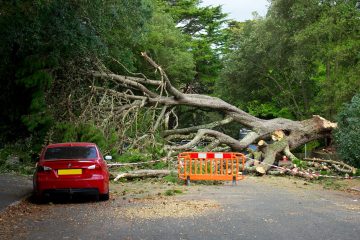Common Insurance Terms
Car insurance is necessary if you have a vehicle, but it can get very confusing at times. To help with that confusion, here are the more common car insurance terms and what they mean.
Terms
Actual cash value (ACV) – The current value of your property. How much it would cost to replace it minus the depreciation
Binder – Temporary insurance coverage until you receive the permanent policy
Bodily Injury – A physical injury to a person
Collision – Insurance that pays for the damage to your car no matter who was at fault for the accident. The insurance company must pay for the repairs or cut you a check for the cash value of your car
Comprehensive – Pays for damage or loss to your car from causes other than an accident, like hail, theft, vandalism, or striking an animal.
Declaration Page – The page of the policy that shows the name and address of the policyholder, the length of time that the policy is in force, the vehicles covered, the amount of premium, and the coverage amounts.
Deductible – The amount the insured must pay before any payment is required from the insurance company.
Endorsement – A written agreement added to the policy that expands or limits the benefits that otherwise are listed in the policy.
Gap – Insurance that pays the difference between the actual cash value of the vehicle and the amount still owed on the loan
Liability – Insurance that pays for the injuries to others and the damages to their property from an accident that you caused. Or an accident caused by someone on your policy, also including someone not on your policy that you gave permission to operate your vehicle.
Liability Limits – The maximum amount your policy will pay. Normally listed as in three numbers 250/500/100. The first number is the maximum paid in bodily injury per person. The second number is the maximum paid for bodily injury in total per accident. The third number is the maximum paid in property damage per accident. (Be advised those numbers are only used as an example).
Medical Payments – coverage generally pays for medical costs after you are hurt in a car accident, regardless of who is found at fault for the accident.
Premium – The amount paid to an insurance company to pay for and maintain current insurance coverage.
Property Damage – Physical damage to property.
Rental Reimbursement Coverage – Pays a set daily amount if your current vehicle is being repaired for damages covered by your auto policy.
Towing and Labor Coverage – Pays for towing services when your car can’t be driven. Also, pays for labor for things like a tire change when you are broken down.
Underwriter – The person that reviews a policy application, and decides if the person/risk is acceptable and at what rate.
Uninsured/Underinsured Motorist Coverage – Pays for injuries and property damage in hit-and-run accidents, as well as accidents where the other party doesn’t have coverage or doesn’t have enough coverage.
Conclusion
As I said, insurance is important. What’s even more important is understanding your policy and what’s covered.
If you’d like to learn more about anything listed here, send us an email!


